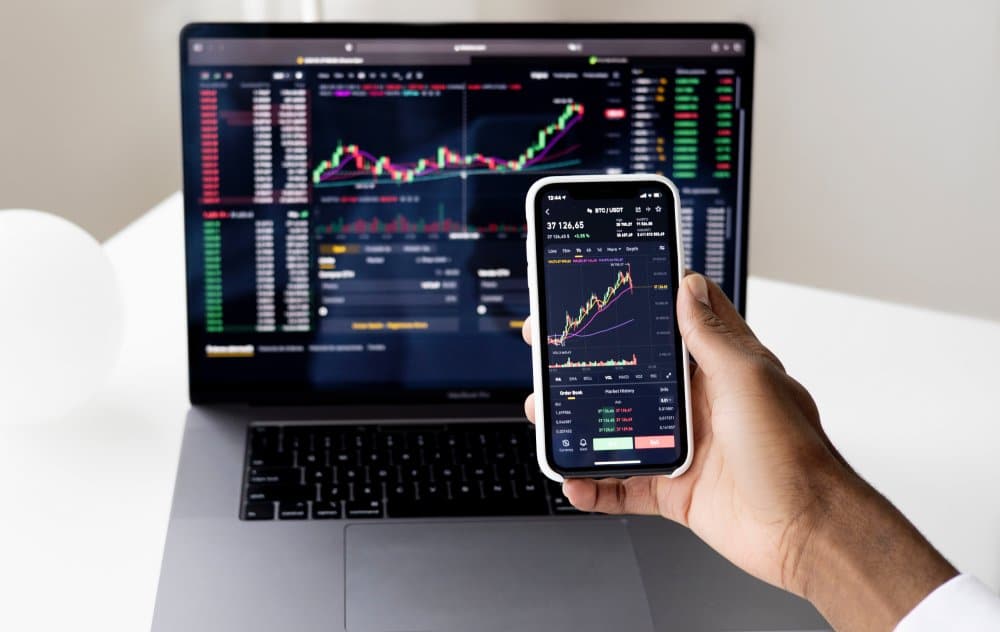Given recent events in the Ukraine, and ongoing volatility in global stock and commodity markets, Empire’s investment committee has prepared the following commentary on the situation and its impact on Empire client portfolios*.
Summary
- On Thursday 24 February 2022, Russia invaded Ukraine. This has had a significant negative impact on global markets, particularly in Europe.
- With this volatile backdrop, February monthly performance of Empire’s Separately Managed Account* portfolios are falls of between -0.2% and -0.5% reflecting the benefits of diversification.
- Historically, after the initial shock reaction of a conflict breaking out, markets of nations not immediately involved in the conflict generally rise during conflict periods.
- Military conflicts historically have extended and accelerated existing trends, in this case this could be; inflationary pressures through supply chain disruption and localisation, global geopolitical polarisation and ultimately long term decarbonisation (after a period of securing supply in the short term).
About Russia and Ukraine
The build up to this conflict has been going on for some time and markets have been concerned about this eventuality in recent months, particularly as western intelligence had flagged Russian intensions and military build-up on Ukrainian borders.
We are not geopolitical experts and can’t comment on the potential outcomes or the long term intensions of Russia – imperialist or otherwise. However, we can bring some context to how this has implications for markets and client portfolios. We express our deep concern for the people of Ukraine and dearly hope for the loss of life and displacement of civilians to be minimal. Some key points about Russia and Ukraine:
- Russia has a GDP roughly the same as Australia’s
- Ukraine has a GDP roughly the same as Western Australia
- Both economies have significant commodity exports
- In terms of global impact of their markets, it is relatively limited outside of energy and resources (e.g. gas and aluminium) and food production (e.g. wheat) though this could have significant impacts on supply chains and inflation
Much has been made of the sanctions imposed on Russia by many countries and the flow on impactions for the global economy. In general we expect these to have a subdued impact relative to what is reported in the media in the short term outside of Russia and continental Europe. There are some impacts on certain sectors such as (but not limited to):
- SWIFT banking sanctions could lead to some non-recoverable debts and associated modest stress for certain parts of the European banking system.
- Energy related sanctions by either NATO alliance members or Russia could harm central European growth, particularly Germany.
- Reduction on earnings for global brands that are ‘shuttering’ Russian and/or Ukrainian operations where they are material.
Market Reaction
- On 24 February as the news broke, the S&P ASX 200 fell 3% but has since largely recovered to be down 1% relative to the pre-invasion level
- European markets fell around 3% on the day of the invasion with Russian stock market falling over 30% and are now trading as follows relative to pre-invasion level:
- The German DAX is down 11%
- The UK FTSE is down 7%
- The French CAC is down 11%
- The Russian Ruble has fallen 33% against the US Dollar and the Russian stock market has remained closed since the initial reaction to the invasion
- The Euro has fallen around 4% against the US Dollar
- On 24 Feb, the US market was initially expected to fall as well with futures in the pre-market pointing to a 3% loss but the market reversed during the day to post material gains with the S&P500 up 1.5% and the Nasdaq up 3%+. The S&P 500 is now slightly above the closing level of 24 Feb.
- Commodities have been materially impacted
- Oil has risen sharply from US$92 to US$115 /barrel (April delivery West Texas)
- Gold has risen around 3% relative to pre-invasion and around 10% since the end of January
- Metals such as Aluminium and Palladium where Russia is a material producer have also risen on supply concerns
- Wheat prices are up around 40% as both countries are wheat exporters
- Bonds have had mixed results with positive returns since the invasion being more than offset in most cases by negative returns across February amidst broader inflationary concerns and expectations of interest rate rises.
This is in the context and backdrop of many global markets already having already being in ‘corrections’ of around 10% with some markets such as the Nasdaq having been on the verge of a ‘bear market’ 20% + fall preceding the invasion. This is important context because the impacts of markets changing expectations on interest rates, particularly in January, where more negative for our client’s portfolios than the impact the invasion has had to date.
Markets in conflicts
It may come as a surprise, whilst there can be volatility around specific events, the impact of localised military conflicts are generally quite muted. Whilst localised wars result in greater shares of government spending being on the military they generally don’t have sustained economic and financial market impacts. This is evidenced by how markets have brushed of conflicts in the middle east in recent years.
However, more significant ‘global’ conflicts can have material impacts in the short term.
Here are some examples of more severe market moves and the time to recover:
| Conflict Event | S&P500 drawdown (top to bottom loss) | Time to recover |
| September 11 | -11.6% | 31 days |
| Iraq’s invasion of Kuwait (Gulf War) | -16.9% | 189 days |
| Tet Offensive | -6.0% | 65 days |
| North Korea invades South Korea | -12.9% | 82 days |
| Pearl Harbour | -19.8% | 307 days |
Source: LPL Financial
What we take from this is if the war was to escalate to a full blown was between Russia and the NATO alliance, more severe market impacts could be anticipated, though markets historically have recovered reasonably quickly from these types of events.
Empire Client Portfolio Performance*
Empire Financial Group’s Separately Managed Account* portfolios returned the following in February:
- Balanced Income: -0.19%
- Balanced Growth: -0.44%
- Growth: -0.40%
This is reflection of the importance of diversification with different parts of the portfolios performing differently during February.
Contributors to performance included:
- Australian Shares: iShares Australian Index +2.1%, Ausbil Active Australian Equity +1.8%, Alphinity Concentrated +1.7%
- Alternatives: Pert Mint Gold: +4.5%, Man AHL Alternatives: +2.0%
- Real Assets: Ausbil Essential Infrastructure +2.3%
Detractors to performance included:
- International Equities: iShares International Equity Index -5.5%, T Rowe Price Global Growth -3.4%, Aoris International Fund -4.5%
- Real Assets: Quay Global Real Estate -4.9%
- Fixed Income: Negative returns between -0.2% and -1.4%
What’s Next for Long Term Investors
The potential risks and implications going forward are:
- In the short to medium term the biggest impact is likely to be an extension of the existing trend of supply constraints leading to upward pressure on commodity prices driving higher inflation. This will be particularly true for gas and oil. There have now been spill over impacts into other areas such as coal as energy substitutes are sought in the short term.
- In the longer term the biggest impact is an acceleration away from the unipolar western democratic world towards the bipolar world split into the democratic world led by the USA and the autocratic world led by China (we note this is a massive simplification of very complex issues but the high level trend is clear). This is likely to extend the trend towards localisation of supply chains and emphasises the importance of energy independence and the democratic west reducing reliance and carbon intensive energy sources in the long term – not just because of the environment!
If the conflict escalates, the impact on markets in directly involved in territorial conflict is likely to be severely negative as their infrastructure and economy are damaged during the conflict. The largest implication for Empire’s clients is if war spreads further into continental Europe this could have significant impacts on European markets as part of global equities.
*Note that performance and fund manager references are applicable to the Empire Growth, Empire Balanced Growth and Empire Balanced Income Separately Managed Account (SMA) portfolios. Not all Empire clients are invested in the same portfolios, and fund manager and market commentary should be interpreted in line with your chosen investment selection.



